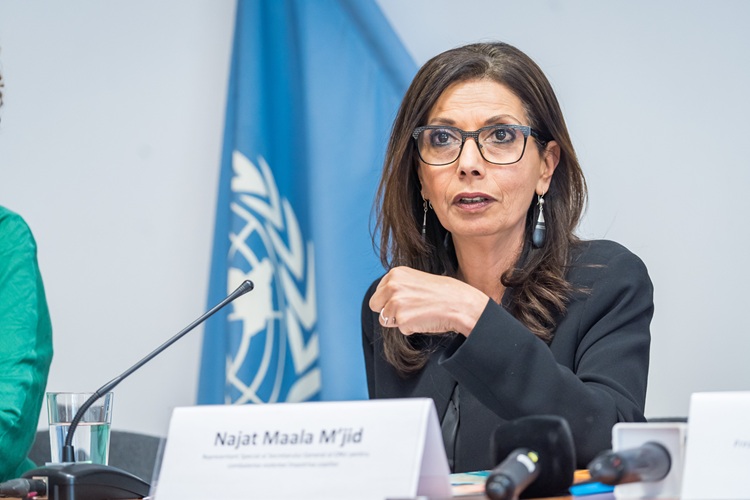United Nations Special Representative of the Secretary-General on Violence Against Children, Dr. Najat Maalla M’jid, has called for stronger cross-sectoral collaboration and investment in child protection services during her official visit the country on 25th Sunday of May at Port Moresby’s City Hall.
Speaking at a high-level meeting hosted by National Capital District (NCD) Governor Powes Parkop and key partners, Dr. Najat stressed the urgent need to translate national policies and strategies into tangible services accessible to all children and their caregivers.
“You know, we can have wonderful policies and strategies, but what truly matters is how we translate these into concrete services that reach children where they are most needed,” Dr. Najat said during the meet.
She then commended Governor Parkop for his active leadership and commitment as a child rights advocate and for supporting the proposed Parliamentary Committee on Child and Youth Well-being.
“This is not an inspection or an investigation,” she clarified. “My role is to advocate and to explore how we can work more closely with the UN team and all key stakeholders, including at the community level.”
Papua New Guinea is among 45 countries participating in the Global Pathfinding Alliance to End Violence Against Children, a growing international coalition committed to preventing and eradicating all forms of violence against children by 2030.
However, Dr. Najat warned that globally, progress remains off track.
“Despite multiple commitments, the world is not on pace to meet the promise made in Agenda 2030,” she said. “We need to reassess and ask why we are failing, and what value this alliance can bring.”
She noted that violence against children is a complex, cross-sectoral issue, driven by factors such as poverty, gender inequality, harmful social norms, climate change, and increasing online risks. The consequences, she said, are severe—affecting children’s health, education, and future productivity.
Dr. Najat cited studies from Fiji and the Solomon Islands, estimating that the economic cost of violence against children can reach up to 11% of national GDP. In contrast, the cost of implementing a cross-sectoral national action plan is as little as 0.12% of a country’s budget.
“We must see child protection not as a cost, but as an investment in our human capital,” she urged. “It is essential to align national and municipal budgets with these priorities.”
The Special Representative also highlighted gaps in child-sensitive social protection, with only 12% of children in developing countries benefiting from assistance programs. She emphasized the importance of integrating such programs with child protection mechanisms to ensure their effectiveness.
Dr. Najat praised ongoing local efforts to streamline services under a “one-stop” model and encouraged the definition of roles, responsibilities, and budget tracking among service providers. She also called for stronger community engagement, recognizing the importance of customary law and local leadership in PNG’s governance structure.
Key areas identified for integrated services include birth registration; early childhood education, healthcare, justice, social welfare, and police support—delivered cohesively throughout a child’s life cycle.
Dr. Najat concluded by offering her support to Papua New Guinea’s national and local authorities, civil society, and development partners in advancing this critical agenda for children.

